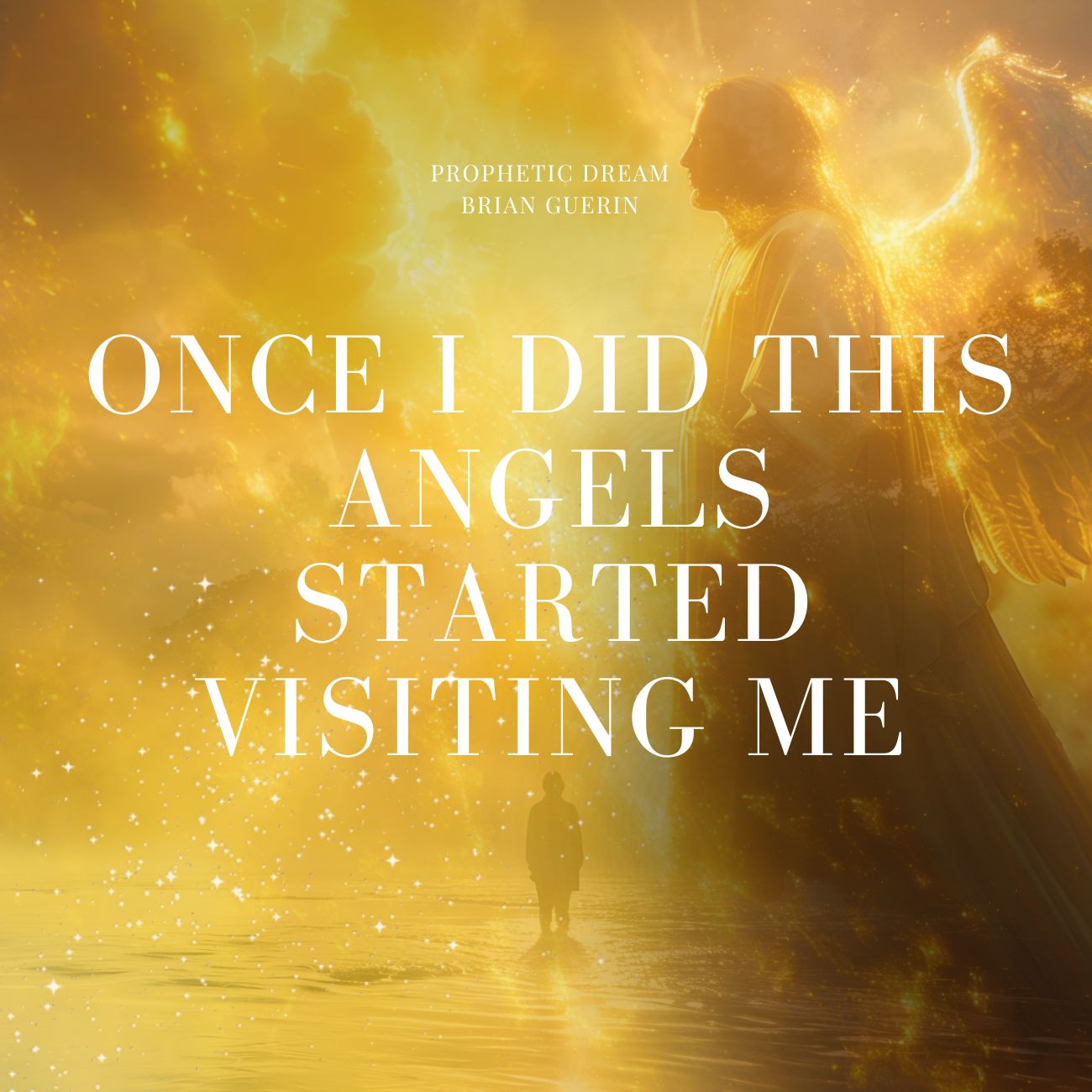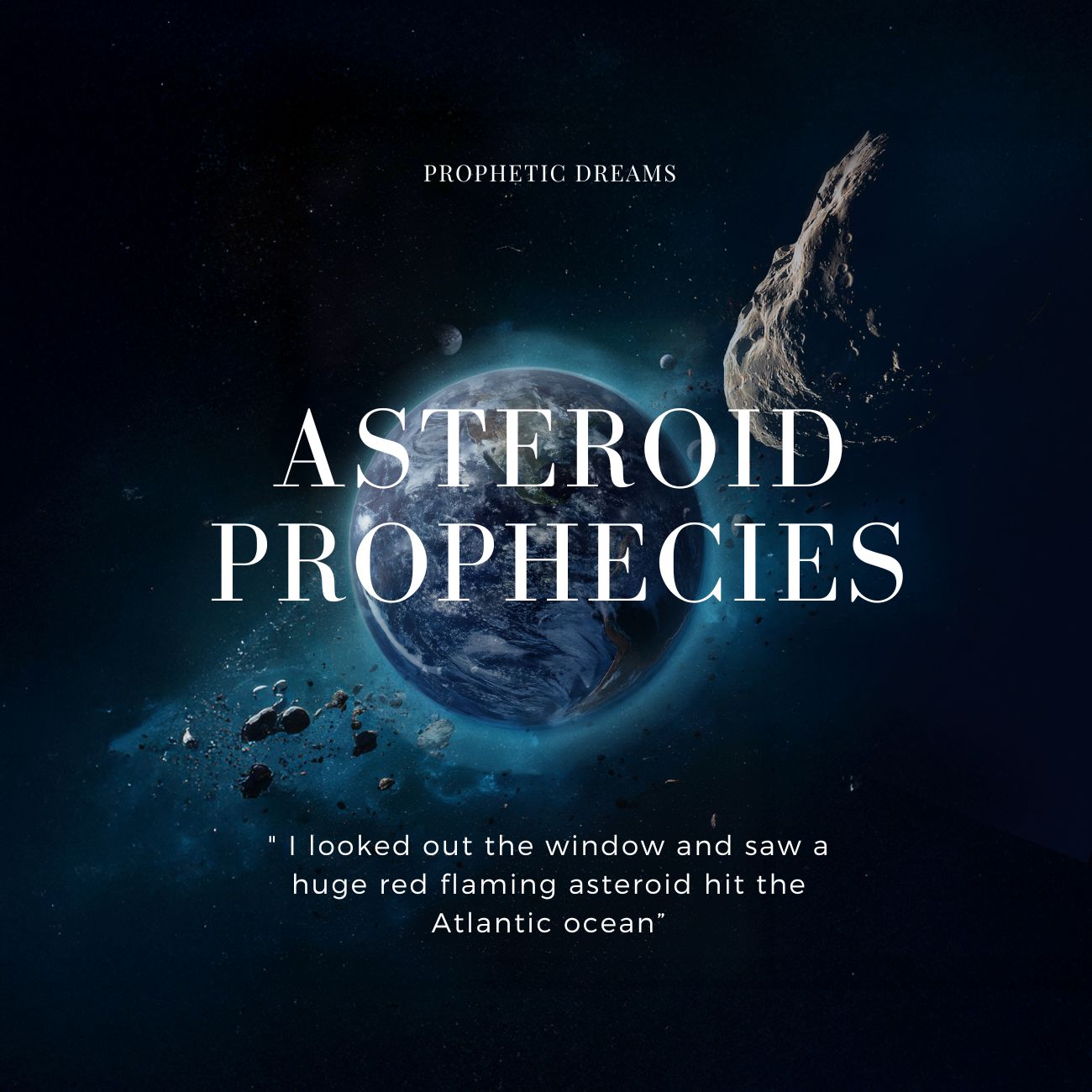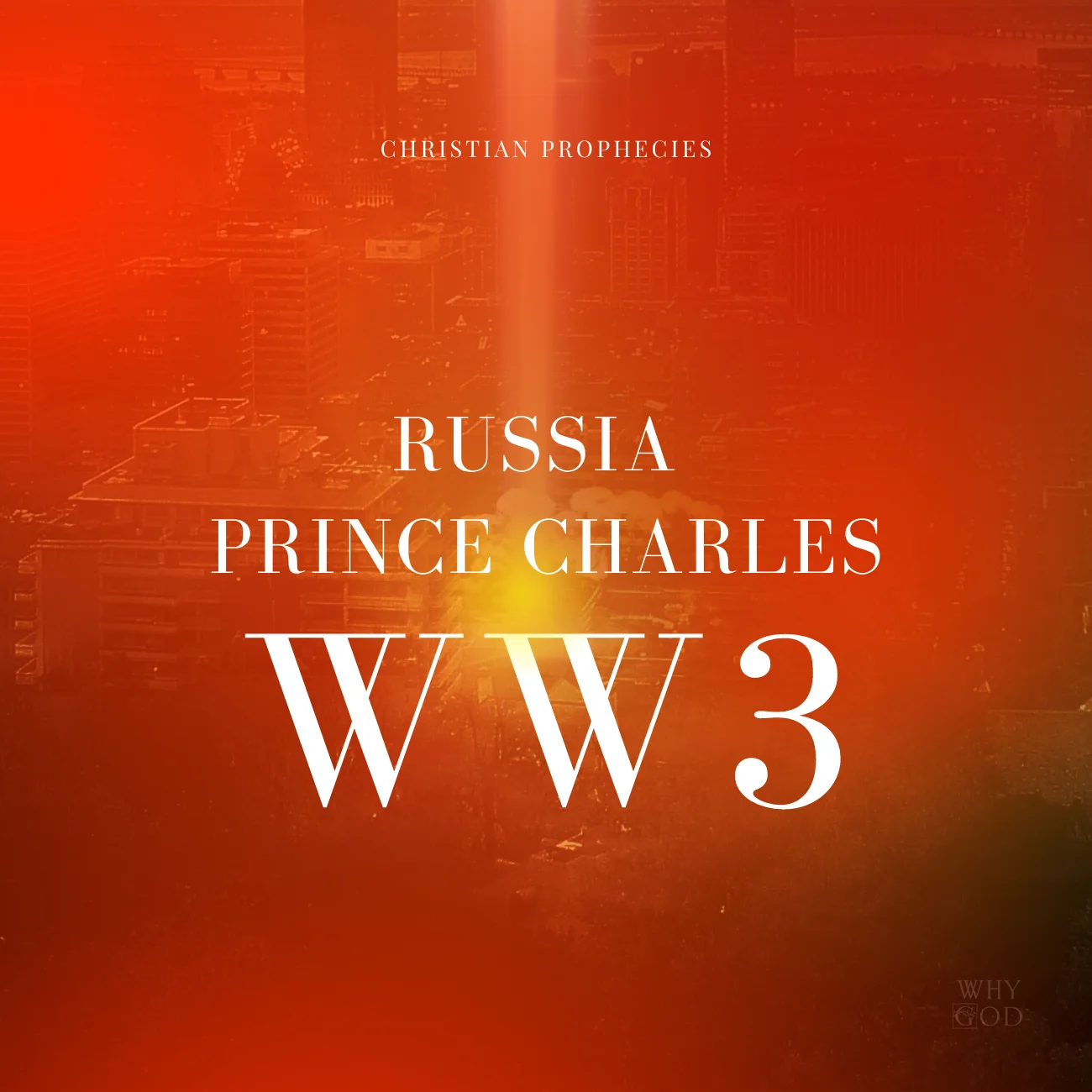Christmas, Hanukkah, and the Antichrist Part 1
Before we talk about Christmas, let’s talk about a holiday that is far less known to the Christian world but is unparalleled in its relevance to the Christian faith and to the end times, as well: Hanukkah.
Hanukkah is a holiday every Christian has heard of but knows very little about, other than that Jewish people celebrate it.
Hanukkah is actually a Hebrew word that means “dedication.” The Feast of Dedication was also called the Festival of Lights.
Why?
Because the entire story revolves around the dedication of the temple and the renewing of the lights that were found on the candelabra itself.
Let’s take a minute and go through the story of this amazing holiday so we can see how it relates to believers around the world who are living in these last days.
The story of Hanukkah can be found in the first book of Maccabees which takes place in the middle of the Second Temple period. If you’re familiar with the story of Esther and Purim then you’re not too far from the story of Hanukkah. Where the liberation of the Jewish people during Esther’s time happened while the people were in exile, the liberation of Israel in the Hanukkah story happened within the land of Israel proper about two centuries later.
After the Purim story, the people of Israel settled back into their homeland and reestablished the temple in Jerusalem. But this time, it was not the villain Haman that was trying to destroy them, but the Syrian Greek king Antiochus IV, who was one of the successors of Alexander the Great. Unlike his father, Antiochus III, who was benevolent to the Jews and allowed them to continue practicing their religion, Antiochus IV was far less benevolent and sought the utter destruction of the Jewish faith.
In 169 B.C. Antiochus’ soldiers marched into Jerusalem, massacred thousands of people, and desecrated the temple. Many of the Jews had already become Hellenized and started to compromise and follow the customs of the Greeks. The once pure religion of Israel had once again been compromised by the influence of pagan oppression. And once again, history would look for a hero who would step in and save the day while bringing the people of Israel back to the faith of their forefathers.
HEROES
This time, the hero would come just like they did in other historical accounts where Israel was outnumbered, outgunned, and out-skilled. God would once again infuse Himself into the heart of one person to be bold enough to stand up against a tyrant and against all odds to save the day.
Moses did it when he defied his royal upbringing and stood up against Pharaoh, Sampson did it against the Philistines, Gideon did it with his 300 men, Phineas single-handedly stopped the plague against Israel, Esther risked herself in going before the king without having been summoned, and Saul and Jonathan’s 600 men went up against the tens of thousands of enemy armies. The story is always the same. God loves to turn over the strong swords of giants with a single rock from a peasant boy’s sling.
The first hero of this story is a man named Matityahu, a priest from the tribe of Levi. And according to Rabbi Fohrman, the names Matityahu and Meshitihu, the original name Pharaoh’s daughter gave Moses when she pulled him from the Nile, are, in fact, the exact same name in Aramaic because the letters Shin and Tav can be interchanged.
This fact, he points out, makes a direct parallel to Moses being used to free the Israelites from the Egyptians and the “Moses” of this story, who is used to free the Israelites from being enslaved (again), but this time by the Greeks.
The story starts off with the Jewish population in Jerusalem being split between those who adopted pagan practices into Judaism and those who were unwilling compromise their faith. Matityahu fit into the latter group and was at his home in Nadain when he was approached by a Greek authority with a bribe that most people would never refuse. This was done by one of the chief Greek officers in an effort to move the influential Matityahu to support the Greek occupation, thus removing one more enemy of the Greek state.
Let’s read the account straight from the Book of Maccabees:
1 Maccabees 2:17
“The officer said to him, ‘You are a leader, an honorable and great man in this city. Come now, you be the first to obey the king’s command. All the Gentiles, the people of Judea, and all the people left in Jerusalem have already done so. If you do, you and your sons will be honored with the title of ‘Friends of the King,’ and you will be rewarded with silver and gold and many gifts.’”
So Matityahu was approached and offered a deal that would give him fame, fortune, and a carefree life. I’m pretty sure that while some of us would have thought about that offer for at least a day or two, most would probably take it on the spot. But this was a major Gideon, Sampson, Moses, Esther, and Jesus/Yeshua moment.
A crisis of belief
What would he do? Who was he? After all, that is what they were really testing: his identity.
Did he really consider himself a priest of Yahweh, the God of Israel, or was it just a job?
This was that moment where that question was about to get answered. Moses had the same moment when he had to decide before he killed the Egyptian if he was a Hebrew or from the Egyptian palace. As believers, we are oftentimes required to make the same types of choices. Are we going to be sold out to do bible things in bible ways or are we going to follow the masses in their compromised religious ways?
It’s easy to swim downstream with all the other fish, but taking a stand for what is right requires a heart for God and a courage that is much needed today.
Like Moses, Matityahu made the same gut response by telling the Greeks that there was no way he could offer sacrifices to a pagan god, regardless of how lucrative the offer might be.
In verse 19, he boldly proclaims, “…I don’t care if every Gentile in this empire has obeyed the king and yielded to the command to abandon the religion of his ancestors. My sons, my relatives, and I will continue to keep the covenant that God made with our ancestors! With God’s help we will never abandon his Law or disobey his commands!”
But no sooner were the words out of his mouth than another Hellenized Jew decided to take the Greeks up on their offer. Unfortunately for him, Matityahu’s fury was unleashed and he boldly stopped this apostate, killing him as well as the royal official who was forcing pagan sacrifices on the spot. And just like Moses, this act caused him to have to flee with his five sons to save his own life. As he was fleeing, he shouted, “Everyone who is faithful to God’s covenant and obeys his Law, follow me!” (1 Maccabees 2:27). With this he fled and the rebellion against the influence of paganism began.
Matityahu continued to lead a large-scale rebellion against the Seleucid monarchy until he died in 166 B.C. His son Judah Maccabee, nicknamed “The Hammer,” took his place. They won wars even when they were outnumbered 6 to 1 and Judah cried out to God,
“We will praise you, Savior of Israel. You broke the attack of the giant by the hand of your servant David and you let Saul’s son Jonathan and the young man who carried his weapons defeat the entire Philistine army. Now in the same way let your people Israel defeat our enemy. Put them to shame, in spite of all their confidence in their infantry and cavalry. Make them afraid and let their bold strength melt away. Let them tremble at the prospect of defeat. We love and worship you so let us kill our enemies that we may then sing your praises!” (1 Maccabees 4:30-33).
And just as he had when he parted the Red Sea, the God of Israel came through miraculously. Judah and his rebel army defeated the Syrians and forced them to flee Jerusalem, but not before an incredible amount of damage was done to both the city and especially to the temple. Judah and his followers repaired it, cleansed the Holy places, and set the menorah back in place so it could provide the light that was needed to continue priestly service. They rededicated the Temple and called for the commemoration of the event to be an annual eight-day feast beginning on the twenty-fifth day of the Hebrew month of Kislev (usually our December) to celebrate the liberation of God’s people from the claws of paganism.
WHY EIGHT DAYS?
The Talmud says that the reason for the eight days is that there was a miracle of oil that happened when the Maccabees rededicated the Temple. The story goes that even though they only had enough oil to keep the menorah lit for one day it stayed lit for eight. This was a story they made up to allow the Jews to celebrate the popular holiday every year since they had a law saying that they could not celebrate military victories. Most Jews know that the story is just a story but many mainstream Christians don’t.
Most scholars believe that because the Jews were not allowed to celebrate the eight-day Feast of Sukkot (Tabernacles) during the war with the Syrians that they chose eight days for that reason. Others say that it was because the Torah says that the inauguration of a priest into service takes eight days. Whatever the reason, this feast is celebrated around the world with the focus being on the light, the golden menorah in the temple.
This focus is why the holiday is often called The Festival of Lights. To commemorate the holiday, a nine-branched menorah is used instead of the traditional seven-branched one that is used in the temple. Eight of the branches represent the eight days of the holiday and the ninth candlestick is added as the shemash, or servant candle, that lights the rest of the lamps. We’ll come back to the amazing spiritual connection of this later in this article.
THE SPIRITUAL CONNECTION
Before I unveil the connection all this has to the antichrist, let’s unpack some of the most obvious but amazing spiritual connections that can be extracted from this incredible story. First of all, God says that we are the Temple of the Holy Spirit (1 Cor 3:16). And just like the original temple in Jerusalem, it is constantly under attack from pagan influence and foreign forces of darkness. The spiritual powers in wicked places mentioned in Ephesians 6:12 are constantly trying to get into our temple to desecrate and leave it unusable to the Most High.
Before a person comes to Christ, their temple has been compromised and used for the foreign gods of this world. But like He has done so many times before, the Father saw this catastrophe and sent a “Hero” to save His people once again: His Son Jesus, or, in the Hebrew tongue, Yeshua, our Messiah. Yeshua offered Himself as a sacrifice for the people, allowing their desecrated temples to be free from foreign invasion and cleansed from the filth and grime their former lives entailed.
Just like Judah Maccabee, Yeshua (The Real Hammer) crushed the head of that ancient serpent called Satan and freed all mankind in the process. And His cry was the same cry as Judah’s:
“If you love Me, keep My commandments” (John 14:15).
John said it this way in
1 John 5:2-3, “By this we know that we love the children of God, when we love God and keep His commandments. For this is the love of God, that we keep His commandments. And His commandments are not burdensome.”
From Moses to Judah Maccabee to the Messiah Himself, the theme is the same: keep the commandments of God and do not allow the pagans of this world to influence you to compromise the purity of the message.
We can also take from this story that identity is everything. Who are we really? What defines us as believers? Are we being defined by the culture, our religious tradition, or by the pure word of God?
When Matityahu was faced with compromise, he chose to stay true to the word that created the testimony. How often are we faced with the choice to assimilate or to stay true to our faith?
Our choices may not be as extreme as those Matityahu faced, but nonetheless, we are forced to either do bible things in bible ways or to accept what was handed to us from generations before. If Matityahu would not have stepped in with his uncompromising spirit, an entire generation would have grown up believing that “this is just how we serve God,” not realizing that they were not serving Him the way He asked at all.
Matityahu and his son Judah Maccabee are inspiring examples of real heroes with a real devotion to the one true God. It is these types of heroes that our children should be looking up to and who we as adults should aspire to. The story of Hanukkah brings to us a story of bravery, uncompromising spirits, devotion, and the vanquishing of darkness through the power of one man’s light.
There’s a reason why more and more Christians around the world are choosing to celebrate Hanukkah in their own homes each year as they see the powerful spiritual connections to the Messiah and the deeper, richer symbolism that is not rooted in secular or materialistic foundations.
The power of making their homes a microcosm of the Temple and adorning their tables and window sills with the symbol of the ancient menorah that symbolizes Jesus/Yeshua Himself allows for a testimony that this house has been cleansed and we are letting our lights shine before men once again. It’s a holiday that has become one of my family’s most favorite of the year and one that has allowed me to see His birth in a whole different “light.”
There are many more connections that we will make in the next part of this article as we explore both the connection to Jesus and to the Antichrist. We will take the time to discover exactly when the Messiah was conceived, when He was actually born, and when He wasn’t.
Stay tuned for Part 2 of Christmas, Hanukkah, and the Antichrist!
Jim Staley
Questions And Answers
Shoshana Dontwanto Yes, “Most scholars believe that because the Jews were not allowed to celebrate the eight-day Feast of Sukkot (Tabernacles) during the war with the Syrians that they chose eight days for that reason.”. We dont need a hannukiah (9 branched menorah) as that was introduced later on and is not what the Maccabees did. Xmas is another golden calf.
Jim Staley Yes, we don’t have to have a Hanukkia. That is just a tradition chosen later as the holiday developed due to the fact that it was an eight day feast so they chose an eight branched menorah and with the servant candle, makes 9. Using a Hanukkia is a great tradition that doesn’t break scripture. But if someone is bothered by it, then they don’t have to use one. Some say that we shouldn’t celebrate anything that God did not tell us to. If that is the case, then we are in big trouble. That philosophy would outlaw birthdays, anniversaries, the Fourth of July, Thanksgiving, wedding rings, the wedding ceremony, using streamers or any kind of decorations and even wearing undergarments…which all are not found in scripture and are just traditions. The list would be endless and would find a person in pretty dull life circumstances. It’s not about the tradition. It’s about whether it breaks scripture. Xmas breaks scripture. Hanukkah enhances it! Shalom!
Moses has an Egyptian name too. How many know his Hebrew name is Tovia?
Unfortunately, it is a wives tale that the name Jesus is not the same name as Yeshua. This was a false doctrine promoted by the Sacred Name movement who said that you cannot be saved by the name Jesus. The name Jesus is just simple linguistic evolution from one language to another. The original name was Yeshua in the Hebrew which is transliterated into the Greek as Ieosus. Over time, the “I” became a “J” and the “O” was dropped to bring us to the name “Jesus” that we have today. If someone has a problem with the name “Jesus” then they also cannot use the word “baptism” either because it also a made up Greek word from a Hebrew equivalent.There are many Hebrew words that simply cannot be translated into Greek, so they literally had to make up a new Greek word for it. Strangely, when the Greek word for Yeshua was transliterated as Ieosus, it should have then be transLATED as Joshua, instead, they kept the same Greek structure and just updated the English.It is critical to understand the original Hebraic meaning of a phrase such as “in the name” or “there is only one name by which men can be saved,” etc…If you are not careful, a person can use his Greek logic and take it literally as the English says. But in Hebrew, it had little to do with the actual name and EVERYTHING to do with the authority BEHIND the name. There were hundreds of people named Yeshua in the first century. Were they all the Messiah? Of course not. It was not the name, but the anointing that was infused into it that made Yeshua the Messiah. It is the characteristics that are behind the name that give it its true power.Jesus is not a different god by a long shot. And it is that false theology that will keep Christianity in the dark, for their own conscious and logic will reject such a notion, knowing that they are serving the one true God of the bible. It is not a sin to use Greek words and our Father is just that, a father. He knows exactly who is calling upon Him regardless of language, dialect or whether they can speak at all. Shall we say that all of us were never saved because we were saved in a Christian church under the name Jesus? Shall the entire Messianic community indict themselves that they might be serving a different God because technically it is impossible to know how to pronounce the four letter tetragrammaton? And according to grammar rules, what if someone uses Yahshua instead of Yeshua not knowing that Yahshua is grammatically incorrect? Are they serving a different Messiah? Of course not. We are not calling on a name. We are calling on the one behind it. When you sign your name and put your signature down for something, you are giving the SIGN of your NATURE. That is what a signature is. It is your word…and has nothing to do with your name. A name is only as good as the nature behind it.Lastly, I use Jesus in my teachings because a good teacher knows his audience and knows how to speak their language in order to get them to understand his language. Yeshua is a different language. It’s Hebrew. If I write a book and only use Yeshua, and they have no idea what that means, the culture shock can be so great that they don’t hear anything I am saying. But using Jesus/Yeshua, then Jesus, then just Yeshua subtly trains them and relaxes the brain and emotions so they can actually hear what I am saying. We are called to be fishers of men and that means we need to be smart about using the best bait.So my friends, don’t let the name Jesus scare you. It’s just an English version of the Greek name of Yeshua. And I can assure you that our heavenly Father is not up there like Zeus with readied lightning bolts to throw down to whoever does not pronounce His name just right. What He is looking for are those that are LIVING the power and love that the name represents. Trust me, there will be many Messianics that will be shocked when they get to heaven and discover how many Christians who lived Jesus and never heard of Yeshua, will be living in homes twice the size of theirs.Shalom!
Jim






